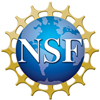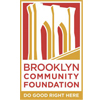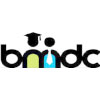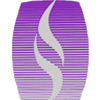Welcome to AMPS/CBRI! Watch Video
AMPS/CBRI
On November 23, 2009, when President Obama introduced his new initiative, "To Educate and Innovate," he said, "I believe that robotics can inspire young people to pursue science and engineering." For over a decade, our team has advocated engaging students' fascination with modern technologies (e.g., robotics, gaming, and sensing) as a hook to stimulate them to learn science, technology, engineering, and math (STEM). For example, in AY2008, to gauge the effectiveness of using robotics to engage youngsters in STEM education, we piloted the CBRI effort. The CBRI pilot was created through grants from the Independence Community Foundation (ICF) and JP Morgan Chase Foundation. In AY2009, the CBRI team received a 5 year NSF grant for a synergistic project "Applying Mechatronics to Promote Science (AMPS)." Moreover, in AY2009, CBRI received generous support from ICF, Chase, Motorola, NY Space Grant, and AGEP.
AMPS/CBRI project is a partnership between NYU-Poly and twelve inner-city public schools in New York City. Project team, consisting of graduate "Fellows," school teachers, and university faculty, is striving to engage K-12 students' fascination with modern technologies as a hook to stimulate them to learn science, technology, engineering, and math (STEM). The project aims to:
- broaden the learning experience of Fellows and provide them with teaching, communication, pedagogical, management, and team building skills;
- engage K-12 students in STEM studies through exciting hands-on activities and robotics competitions; and
- provide technology literacy and professional development to teachers.
The main elements of the project are as follow. An education expert conducts a five-day pedagogy workshop for Fellows. The workshop introduces to Fellows fundamental pedagogical concepts, tools, and strategies, e.g., lesson development, activities and materials for teaching, assessment, learning styles, and active learning. In order to develop and hone Fellows' communication skills, the workshop examines the nature of processes such as explanation, argument, and predicting associated with communicating enthusiasm and understanding of their field of study. Moreover, a robotics expert conducts a three-day summer workshop to co-train Fellows and teachers in robotics and FIRST Lego League (FLL). The workshop attendees explore the potential for integrating robotics-based activities in class and conduct collaborative activities under the guidance of instructors.
After summer training, Fellows are deployed in schools where they collaborate with teachers to plan, design, and conduct meaningful and fun robotics-based hands-on activities to enrich students' science and math classes. All Fellows develop and present a grade-appropriate overview of their research to excite students about STEM careers. Moreover, to further develop and nurture students' interest in STEM disciplines, Fellows and teachers mentor student teams participating in the FLL competition. As mentors, Fellows use their background to empower students to implement fundamental robot design principles, e.g., structural/mechanism designs, sensor selection and placement, and programming strategies. The students collaborate to develop strategies to complete robot missions and to prepare research presentations. To familiarize students with a real-world robotics competition, project team hosts a practice contest and the Brooklyn Borough FLL Competition.
Fellows receive ample opportunities to improve their communication, team-building, and management skills, which prepare them for leadership roles in their careers and communities. For example, Fellows participate in classroom-to teach and to relay their excitement for science and engineering, offer frequent presentations about the project to diverse audiences, and recently led the creation of a local chapter of the Toastmasters Club.Through their participation in the project, Fellows are gaining skills in communication and teamwork and deepening their knowledge of their subject matter through their work with students and teachers. They are gaining an appreciation for the rigors and demands of teaching as well as skill and confidence in their teaching.
The project activities reveal that what students learn surpasses mere mastery of building and programming robots. They also learn applied math and science, improve their computer skills, engage in research, develop team-building and relationship skills to work effectively in groups, and become effective presenters. The project is also addressing the need to reduce the isolation of minority students by allowing them to compete against students from unfamiliar communities and participate with them in informal learning experiences.
Finally, summer training and collaborative activities with Fellows is allowing the teachers to use robotics as a vehicle to engage students through exciting hands-on activities. Moreover, participation in the project is enabling the teachers to raise their expectations for the levels of skill and knowledge in STEM that students can attain, allowing them to challenge students' research, problem-solving, and critical-thinking skills.
Since receiving the CBRI seed grant in 2007 from the Independence Community Foundation and the J.P. Morgan Chase and the AMPS award in 2008 from the GK-12 Fellows Program of the National Science Foundation; the AMPS/CBRI project has been generously supported by the following.
- National Science Foundation
- Brooklyn Community Foundation (formerly, Independence Community Foundation)
- J.P. Morgan Chase Foundation
- Motorola Innovation Generation Grant
- NY Space Grant Consortium
- Alliance for Graduate Education and the Professoriate (AGEP)






